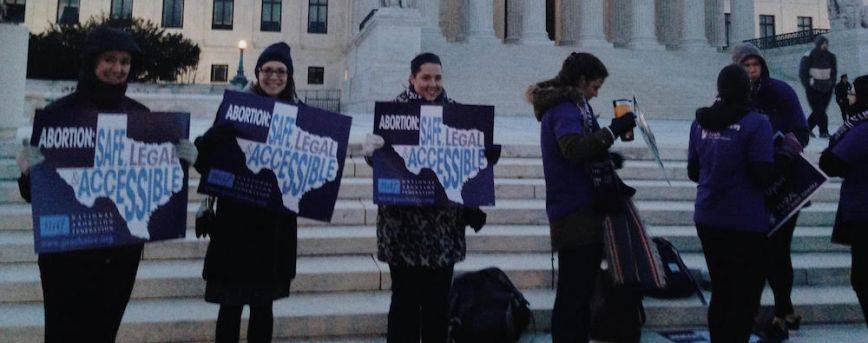This blog originally appeared on the Advocate and was co-authored by Lambda Legal counsel Camilla B. Taylor, Lambda Legal Ford Foundation Post-Graduate Fellow Caroline Sacerdote and Lambda Legal Skadden Law Fellow Kara Ingelhart.
Any day now the U.S. Supreme Court will issue a decision in Whole Woman’s Health v. Hellerstedt, which may be the most important abortion case in decades.
The case involves a challenge to two provisions of Texas's House Bill 2, an anti-abortion law enacted in July 2013 that, if allowed to go into effect, would force the vast majority of Texas abortion clinics to close.
Lambda Legal submitted a friend-of-the-court brief to the Supreme Court in this case because its outcome is crucial to LGBT people. Many members of our own community need access to abortion services. Additionally, landmark court victories for LGBT people share a common doctrinal foundation with precedents protecting the constitutional right to abortion; erosion of the right to terminate a pregnancy puts LGBT civil rights at risk.
The two interconnected struggles for reproductive autonomy and LGBT liberation also share a common obstacle. People who have an abortion — whether members of the LGBT community or not — experience something familiar to all LGBT people: stigma. Although abortion is one of the most safe and common surgical procedures in the United States, two in three women who have had abortions anticipate being stigmatized if others find out.
This concern of being “outed” as having had an abortion keeps 58 percent of those who have had abortions from sharing their stories with their families and friends. This silence perpetuates abortion stigma and interferes with the ability of those who have accessed abortion to advocate for themselves in the political arena. As the LGBT community knows all too well, it is hard to fight against efforts to roll back your civil rights when you have to remain in the closet.





